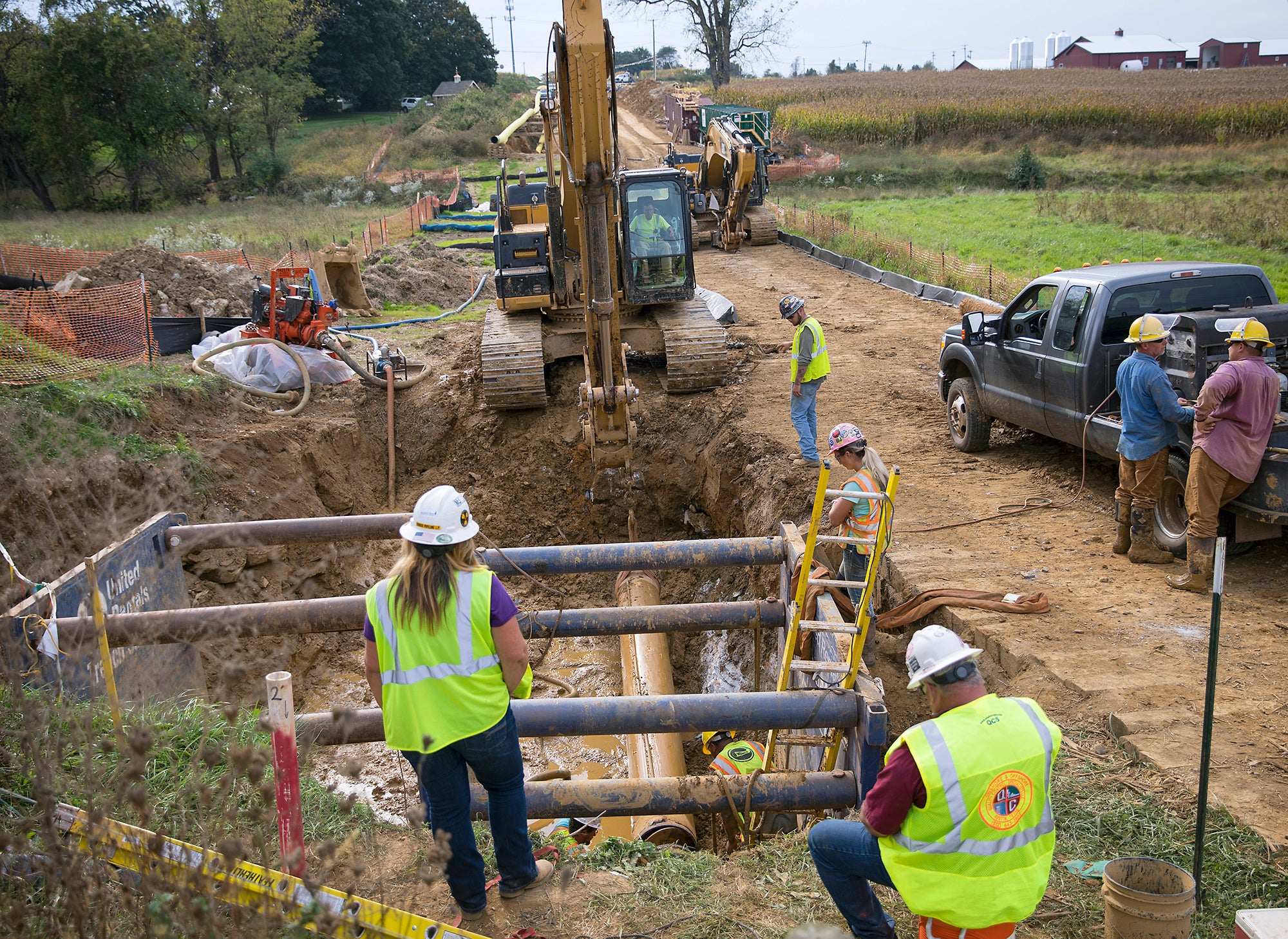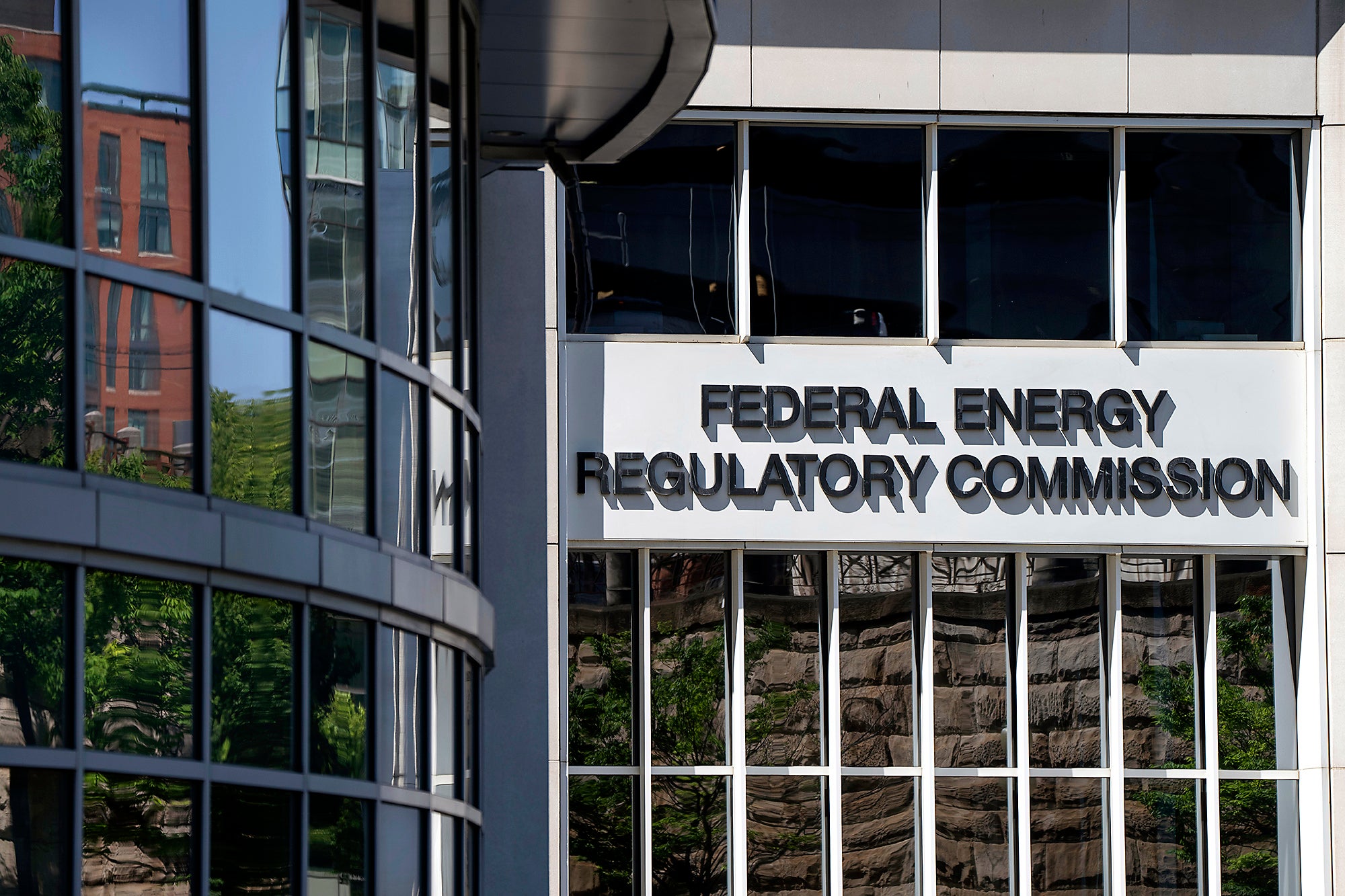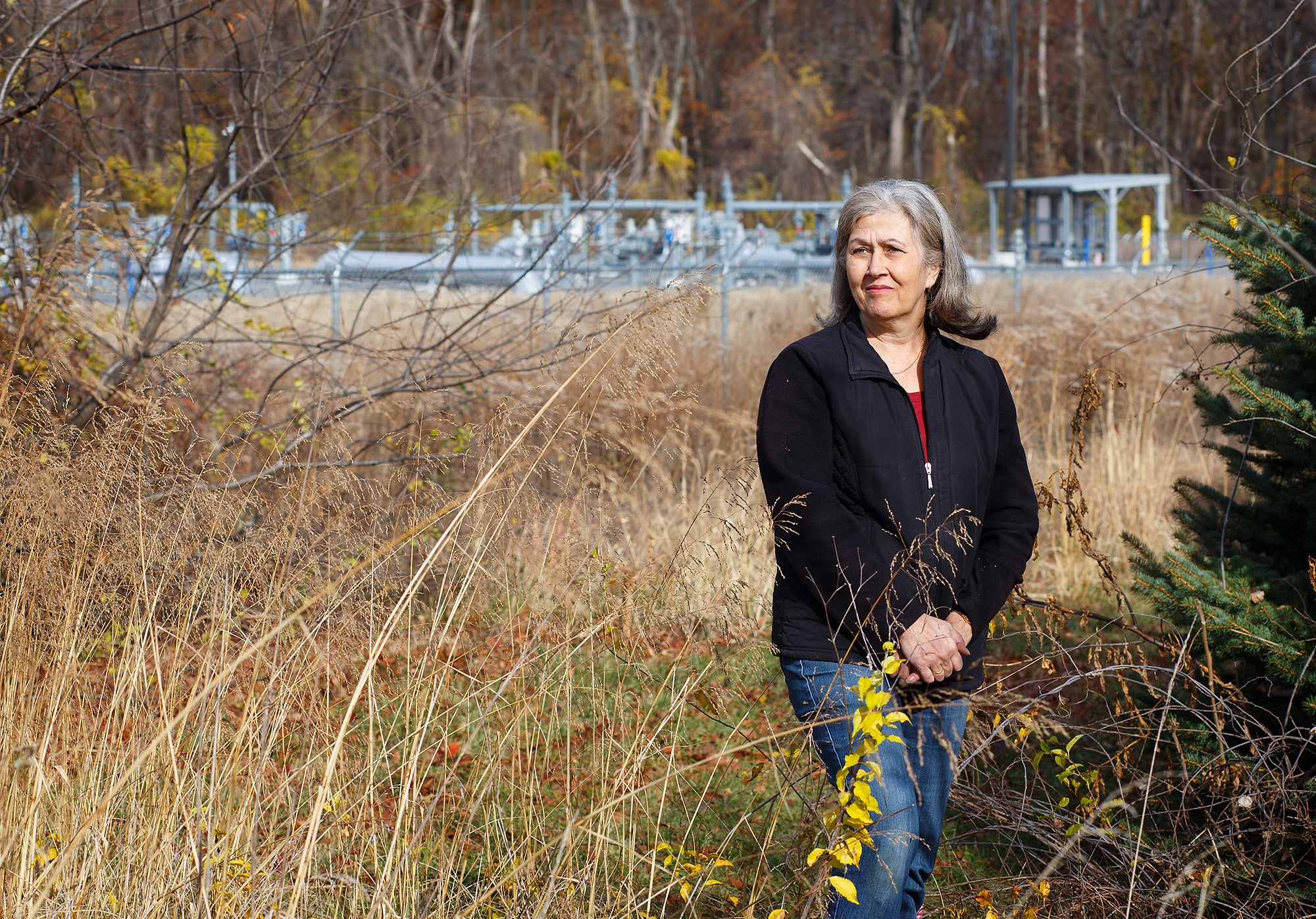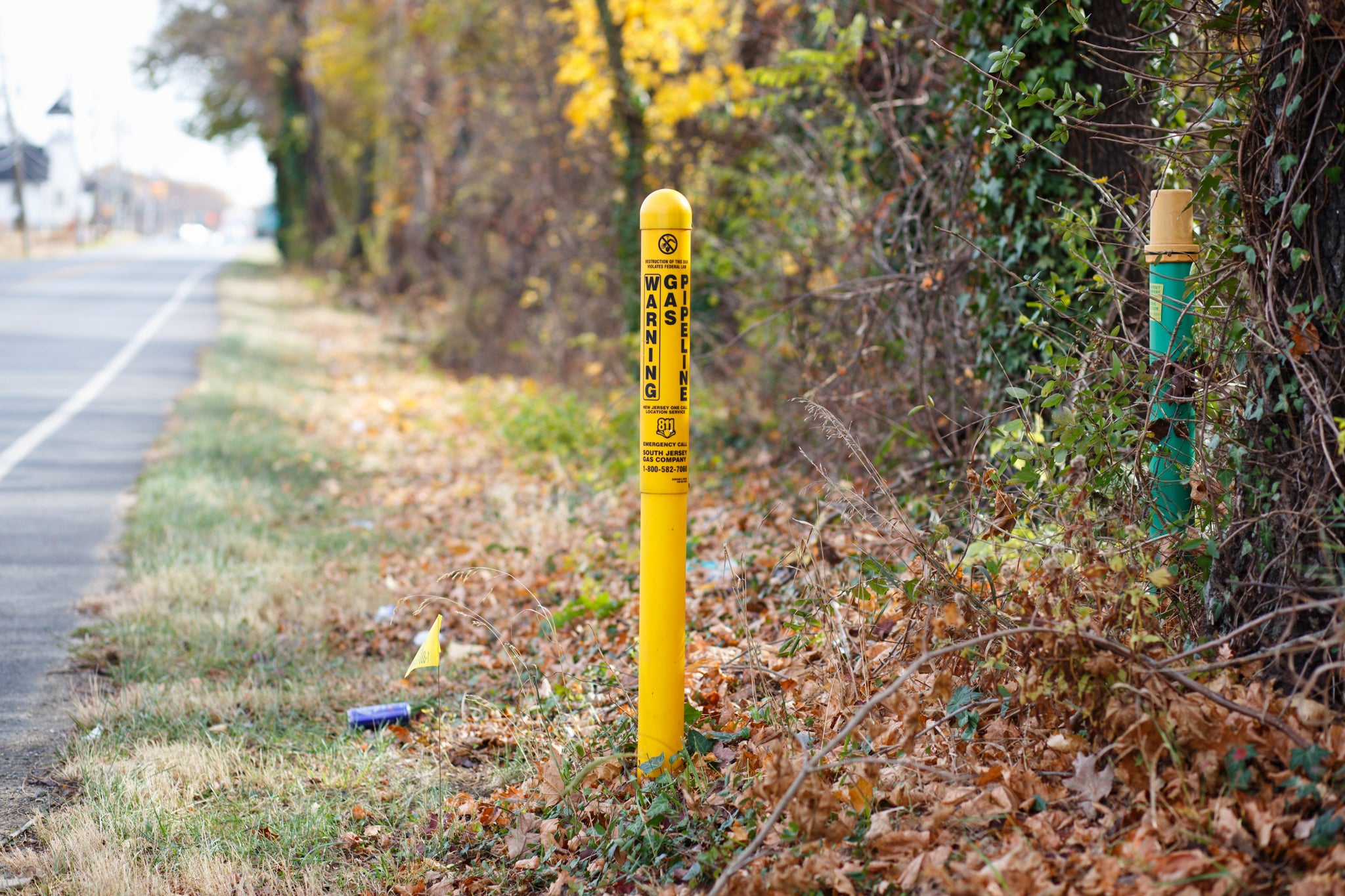Communities’ Fight Against Gas Pipeline Projects Heats Up
The courts are striking down more FERC gas approvals. But the fight isn’t over to keep gas pipelines out of our communities.

This page was published a year ago. Find the latest on Earthjustice’s work.
To have a shot at avoiding the worse impacts of climate change, we must prevent new fossil fuel infrastructure from being built. Yet, for the past few decades the government has largely rubber stamped methane gas expansion projects, locking us into more decades of dependence on a greenhouse gas 28 times more potent than carbon dioxide.
The agency in charge of greenlighting those projects is the Federal Energy Regulatory Commission (FERC), an independent body which makes decisions about major energy projects in the U.S. and has the power to help shape whether our energy future is clean or dirty. Unfortunately, FERC has repeatedly approved the construction of massive methane pipeline projects while failing to perform thorough assessments on their climate and environmental justice impacts.

The Federal Energy Regulatory Commission (FERC) is seen at right in Washington. (Jacquelyn Martin / AP)
It’s long overdue for the agency to change how it reviews proposed gas projects, and FERC’s refusal to make those changes is leading to losses in court. This year, the U.S. Court of Appeals for the District of Columbia Circuit rejected FERC’s approval of five methane gas pipeline projects, one of which was challenged by Earthjustice and its partners for FERC’s failure to justify approving a massive gas pipeline expansion. Together, the projects would have emitted a combined lifecycle total of over 210 million metric tons of CO2 every year.
The project Earthjustice challenged runs near Regina Simmons, a longtime resident of West Deptford, New Jersey. Simmons lives a mile and a half away from the site of the Regional Energy Access Expansion (REAE) project, a methane gas pipeline expansion. REAE would operate for an estimated 50 years, increasing emissions in New Jersey by 12% every year, undermining the state’s ambitious emissions reduction goal of a 50% decrease from 2005 levels by 2030.
Simmons, an avid outdoorsperson, is deeply engaged with the goings-on in her community: she has been a member of her local Sierra Club chapter for 18 years and regularly reads the township newsletter. Yet neither she nor her neighbors had been made aware of the REAE project by the township — she first learned about it in 2023 from a mailer she received from Earthjustice.
“None of my neighbors I spoke with had heard about the project,” she says. “It wasn’t until I drove by the construction site that I saw what was happening.”
For Simmons, the consequences of living near the compressor station are both personal and professional: She works as a respiratory therapist who treats patients with asthma and chronic obstructive pulmonary disease, and she suffers from asthma herself.
“I know that bad air quality exacerbates respiratory issues,” she says. “Extreme heat is also bad for people with lung disease, such as myself and my patients, and infrastructure like the proposed pipeline and compressor station will contribute to more extreme heat due to climate change.”

Regina Simmons fought the Regional Energy Access Expansion methane pipeline project that impacted her hometown of West Deptford, New Jersey. (Jess Benjamin for Earthjustice)
Beyond its impact to air quality, the REAE project would have inundated the Garden State with gas it did not need. Nearly 74% of the gas was allocated for New Jersey, but the New Jersey Bureau of Public Utilities, which is responsible for protecting the state’s gas consumers and ensuring adequate supplies of energy, commissioned an independent assessment that found that the state already had sufficient gas capacity to meet residents’ energy needs.
But FERC didn’t listen. Instead, it argued that the project was needed because private gas companies were interested in purchasing and distributing the gas to residents. So Earthjustice and its partners challenged FERC’s decision to permit the REAE project before the D.C. Circuit Court and won a monumental victory.
“The court made it clear that FERC’s longstanding flawed rationale that private contracts for capacity demonstrate a public need for a gas project is no longer sound or compatible with our regional, national, and international climate goals,” says Moneen Nasmith, Senior Attorney at Earthjustice.
In a searing decision, the court unanimously agreed that FERC’s National Environmental Policy Act (NEPA) analysis was inadequate for failing to meaningfully evaluate the project’s enormous contributions to climate change, stating that the commission “walked away from relevant issues with a fatalistic shrug.”
The court also agreed that FERC failed to comply with the Natural Gas Act when it concluded that there was a public need for the REAE project despite New Jersey’s assertion that its ratepayers do not need additional gas capacity, and that FERC failed to weigh the project’s climate harms in approving the expansion.

A marker for an underground Transco methane pipeline in West Deptford, New Jersey. (Jess Benjamin for Earthjustice)
In response to the court’s decision, the pipeline’s operator, Transco, requested that FERC allow it to keep operating until FERC issues a new decision. Earthjustice will continue to oppose the REAE project and fight to ensure FERC fixes the problems with its analysis of the project’s necessity and climate impact. If FERC properly evaluates the lack of public need for REAE’s capacity and its enormous climate harm, FERC will have no choice but to reject the project.
Until FERC stops greenlighting unneeded gas infrastructure that thwarts our ability to solve the climate crisis, we’ll continue to push for effective and necessary changes and challenge FERC’s approvals in the courts.
Established in 2008, Earthjustice’s Northeast Office, located in New York City, is at the forefront of issues at the intersection of energy, environmental health, and social justice.